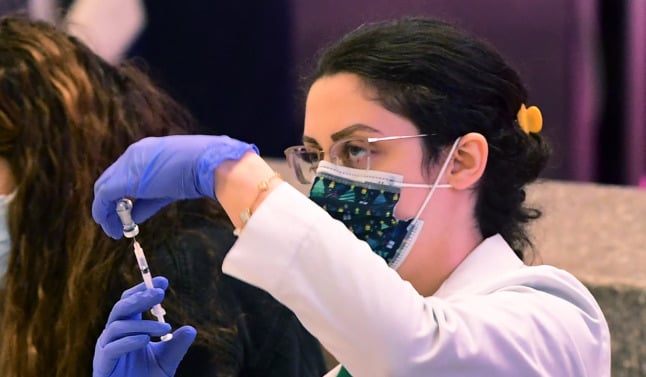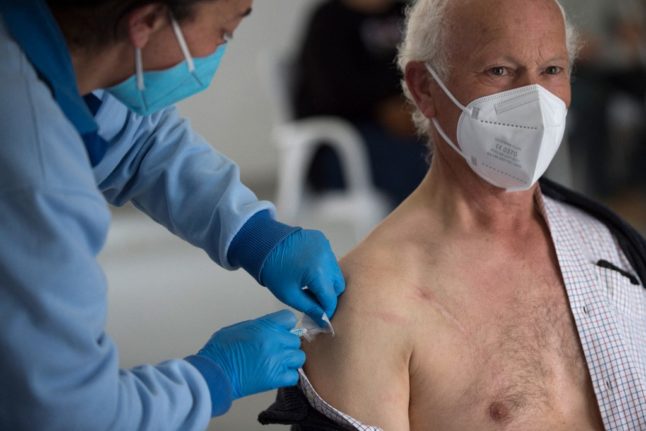The new rule is part of the update of the Vaccine Strategy against Covid-19 released by Spain’s Ministry of Health on Wednesday.
“People for whom a booster dose is recommended who have had symptomatic or asymptomatic Covid-19 infections after the full primary vaccination regimen, will be administered a booster dose with mRNA at least four weeks after a diagnosis of the infection,” said the document shared by Spain’s Health Ministry.
Currently, booster doses have been approved for those over the age of 40.
Those who received the Pfizer or Moderna vaccines will be eligible to get their booster dose six months after they received their second jab, while those who received AstraZeneca or the single dose Johnson & Johnson (Janssen) will be able to get their booster after only three months.
According to the latest data, 83 percent of the population who are eligible to receive their booster have already had it.
READ ALSO: Spain now has the highest Covid infection rate in Europe
The update to the Vaccine Strategy document also details some changes regarding vaccination in minors. This includes children from ages 5 to 11 who are given the Pfizer childhood vaccine, the only one authorised for this age group.
This will now be given in two injections separated by eight weeks. In the event that a child reaches twelve years of age before receiving the second dose, the adult dose will be used, only after the two-month interval has passed.
The document also states that those children who have had Covid-19 will be given a single dose one month after diagnosis or date of the onset of symptoms.
If they are infected with the virus between the two doses, they will receive their second dose after four weeks have elapsed, also maintaining the eight-week interval.
These changes come as Spain is currently battling its sixth wave of Covid.
Over the Christmas season, Spain has seen a steep rise in cases. On Wednesday Spain recorded the highest cumulative incidence rate in Europe at 2,433 cases per 100,000 inhabitants, surpassing the United Kingdom (2,326), France (1,693), Switzerland (1,550) and Portugal (1,208).
Ninety percent of the population of Spain has already received two Covid-19 doses and more than a million children between 5 and 11 years old have received at least their first dose.



 Please whitelist us to continue reading.
Please whitelist us to continue reading.
Member comments